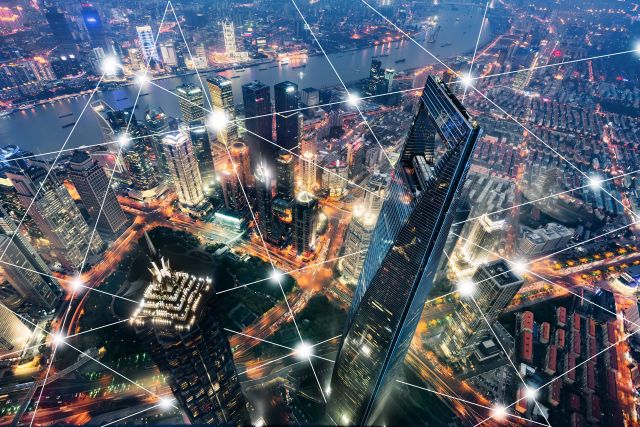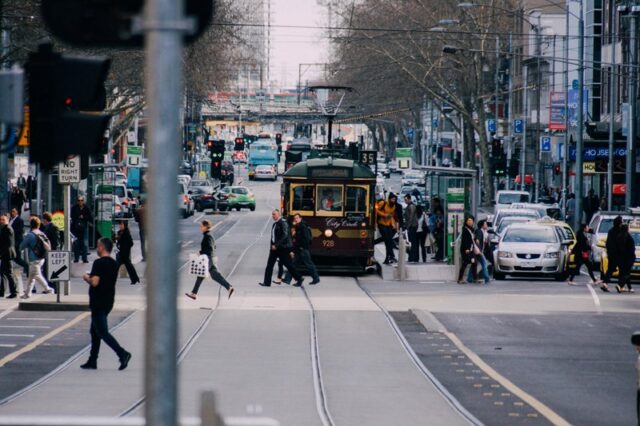
The modern world is undergoing a profound transformation as cities across the globe embrace the concept of “smart cities.” These urban hubs are not just adopting technology, they are integrating it into the very fabric of urban life.
From improved transportation systems to energy-efficient infrastructure, smart cities are paving the way for a more sustainable, efficient, and connected future.
The concept of smart cities revolves around using technology to enhance the quality of life for residents and improve the efficiency of urban operations. These cities leverage cutting-edge innovations like the Internet of Things (IoT), Artificial Intelligence (AI), and data analytics to create a more connected and data-driven environment.
Key Technologies Driving Smart Cities
At the heart of every smart city are the key technologies that drive innovation. IoT, for instance, connects devices and sensors to the internet, allowing for real-time data collection and analysis. This data, in turn, informs decision-making in areas such as traffic management, waste disposal, and energy consumption.
AI plays a crucial role in making sense of the vast amounts of data generated in smart cities. It powers predictive analytics, enabling city officials to anticipate and mitigate challenges, from traffic congestion to environmental issues.
Benefits of Smart Cities
The benefits of smart cities are far-reaching. Improved efficiency in resource management, for example, reduces waste and optimizes energy consumption, leading to substantial cost savings. Sustainability is another cornerstone, as smart cities often prioritize renewable energy integration, waste reduction, and environmentally friendly transportation options.
Residents of smart cities enjoy an enhanced quality of life. Smart healthcare systems offer quicker and more accessible medical services, while public transportation is more reliable and convenient. Smart cities also promote citizen engagement, with residents actively participating in urban development and decision-making.
Challenges and Solutions

The path to becoming a smart city is not always without its challenges. Privacy concerns, data security, and the digital divide are issues that demand attention. To address these challenges, many cities are implementing stringent data protection measures, building secure networks, and working to ensure that smart technologies are accessible to all citizens.
Infrastructure and Connectivity
A critical aspect of smart cities is their infrastructure and connectivity. High-speed internet access and cutting-edge technologies like 5G are the lifeblood of smart city applications. But what’s equally significant is the transition from traditional copper-based telecommunication systems to modern infrastructure like fiber optics.
One noteworthy development in this regard is the replacement of Plain Old Telephone Service (POTS). POTS replacement involves upgrading the outdated copper-wire telephone networks with fiber-optic lines. Fiber-optic networks offer significantly higher data transmission speeds and capacity, making them essential for smart city applications.
Fiber-optic networks, capable of transmitting data at the speed of light, are the backbone of smart cities. They provide the necessary connectivity for real-time data exchange between IoT devices, sensors, and centralized systems. This not only enables faster internet access, but also supports a multitude of smart applications, from smart grids to advanced traffic management systems.
Urban Mobility and Transportation

Smart transportation is a key focus of smart cities. From autonomous vehicles to advanced traffic management systems, technology is revolutionizing the way people move within urban environments.
Traffic congestion, a major issue in many cities, is being addressed through real-time data analysis and smart traffic lights that adjust their timing based on traffic flow.
Energy Efficiency and Sustainability
Energy efficiency is paramount for smart cities aiming to reduce their carbon footprint. Smart energy grids optimize energy distribution and consumption, while renewable energy sources like solar panels and wind turbines are integrated into the city’s power generation.
Energy-efficient buildings are another essential component. These structures utilize smart technologies to reduce energy consumption, resulting in lower utility bills and reduced environmental impact.
Healthcare and Public Services

Smart technology is not limited to transportation and energy. Healthcare and public services have also seen significant improvements. Telemedicine, for instance, allows residents to consult with healthcare providers remotely, enhancing access to medical care.
Emergency response systems have become more efficient thanks to real-time data collection and analysis. Public services such as waste management and water supply are optimized through smart sensors and data-driven decision-making.
Data Management and Privacy
The vast amounts of data generated by smart cities necessitate robust data management and privacy measures. Secure data storage and encryption protocols are crucial to protect sensitive information.
Modern cities should also establish clear policies for data usage and ensure transparency in data collection and analysis.
The Role of Public and Private Sectors

Building smart cities is a collaborative effort that involves both the public and private sectors. Government agencies, private companies, and startups work together to develop and implement smart technologies.
Regulations and policies play a significant role in shaping smart city development, ensuring that it aligns with the best interests of the community.
Final Words
The emergence of smart cities is not merely a technological shift, it’s a fundamental transformation of urban living. These cities leverage cutting-edge technologies like IoT, AI, and data analytics to improve efficiency, sustainability, and the quality of life for their residents.
Challenges such as privacy and data security are being addressed daily, and the transition to modern infrastructure like fiber optics is facilitating the growth of smart cities.
In the near future, smart cities are poised to play a pivotal role in addressing urban challenges and creating more livable, sustainable, and connected communities. The journey is ongoing, but the promise of a brighter, smarter future is within our grasp!













